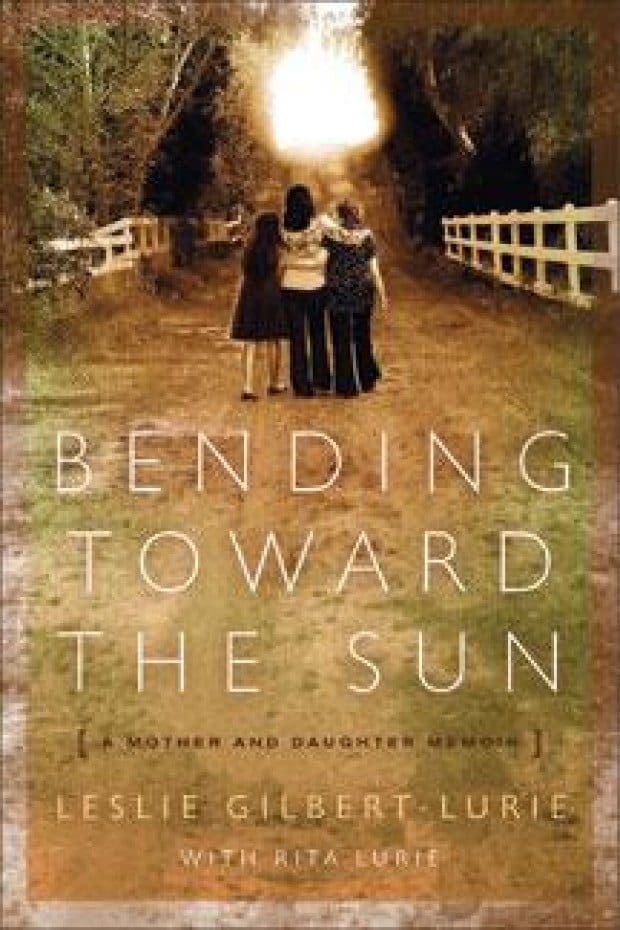A mother and daughter cowrite “Bending Toward the Sun,” which chronicles Rita Lurie’s survival and then painful aftermath of the Holocaust’s affect on her family.
By Melonie Magruder / Special to The Malibu Times
Seventy years ago this month, Hitler’s army invaded Poland, launching World War II and setting in motion a descent into the signature inhumanity of the 20th century-the Holocaust. One Malibu resident lived through the terror of the time and has co-written a book, describing the intergenerational trauma, loss and ultimate triumph of survival that is the legacy of that experience.
“Bending Toward the Sun” was written by Leslie Gilbert-Lurie and her mother, Rita Lurie, as a chronicle of Rita’s family’s wartime ordeal and its influence on the children and grandchildren that came afterward.
“When Mom first started talking about the Holocaust to high school students, she was afraid they wouldn’t listen,” Leslie said in a phone interview from New York, where they were preparing for a “Today” show appearance. “Turns out, they were inspired. But when Mom started reading about Holocaust deniers, she knew she had to make a broader statement.”
Leslie, an attorney, media executive and advocate for the nonprofit Alliance for Children’s Rights, collaborated with her mother for 10 years in writing the memoir, coaxing painful testimony that had been long left unexplored.
“I lost my mother and little brother while we were in hiding,” Rita said. “It was years before I dealt with that trauma emotionally and it affected all my relationships after the war ended.”
Rita was five years old in 1942, living in a tiny town in southeast Poland, when her family was forced into hiding by the rumors of Nazi atrocities. Fourteen members of her extended family disappeared into the barn attic of a Catholic neighbor.
For two years, they stayed, lying practically immobile and silent during the day, when the Gestapo would come to the farm to buy supplies, and rarely sneaking out at night to forage for food in the woods. The farmer’s wife resented the danger the Jewish family presented and was persuaded not to kick them out only when she realized that her family would be shot for “harboring Jews.”
“When we children cried, they would put pillows over our faces to stop the noise,” Rita remembered. “I watched my brother and mother die in front of me.”
Rita said that they would fall into “a kind of trance” to get through the days and she learned to disengage herself from the reality of her life. But the damage was inflicted, buried deep in her psyche, ready to grow like a silent cancer. At the war’s end, her family was unable to reintegrate into Polish society.
“There was a lot of anti-Semitism,” Leslie explained. “They were all forced into a displaced persons camp.”
But that refuge in southern Poland also crumbled and the family moved to camps in Czechoslovakia, then Romania, Austria and, finally, Italy, where Rita and her sister were first exposed to any semblance of normalcy with schools and hospitals that treated Rita’s consumption. In 1949, they emigrated to New York City.
“My father, who was so respected in our Polish village, had to work in a sweatshop and it just diminished him,” Rita said. “He was never the same.”
Rita and her sister were thrust into an alien culture and language, encouraged to only look forward and forget about the past. She even had to give up her birth name, Ruchel, and adopt her American name, Rita.
Despite excelling at school and developing into an exceptionally attractive young woman, Rita was tormented by memories she couldn’t even describe and a harrowing sense of loss from her mother’s death. It was only through intensive therapy that she was able to shatter the specter of those demons and begin to lead a normal life.
But, as Leslie notes in the second part of “Bending Toward the Sun,” such elemental psychic damage doesn’t disappear and Leslie was keenly aware of her mother’s unspoken grief during her own childhood.
“I always felt a separation anxiety when I was a child and my own daughter has experienced the same,” Leslie said. “One of the messages of the book is the psychological need of children and how profound trauma can seem to imbed itself genetically. My mom was never bitter, but that ache was always there. And now my daughter feels it.”
“I had a certain anxiety about bringing children into the world,” Rita admitted. “But, honestly, I did it so I could expand the Jewish population and so they could grow up having what I never had and living full lives.”
There are six surviving members of Rita’s family that hid in that Polish attic for two years, most of whom came to America in the late 1940s and assimilated. Leslie said one of the more difficult tasks in writing the book was speaking to them about their experience, forcing them to relive the horror.
“Mom made the decision to tell her story, but that means asking a lot from others,” Leslie said. “You have to tread lightly. Fortunately, they were all very supportive and forthcoming. It made me feel closer to them.
“And now the next generation has learned the importance of not just being a bystander,” Leslie continued. “One individual doing the right thing, like the farmer who hid my mother in the attic, can make a big difference in the world.”
Rita said, “I hope my grandchildren have learned to be grateful for the life they have; to know how lucky they are.”
“Bending Toward the Sun” (HarperCollins) is available at major bookstores and at Amazon.com.

